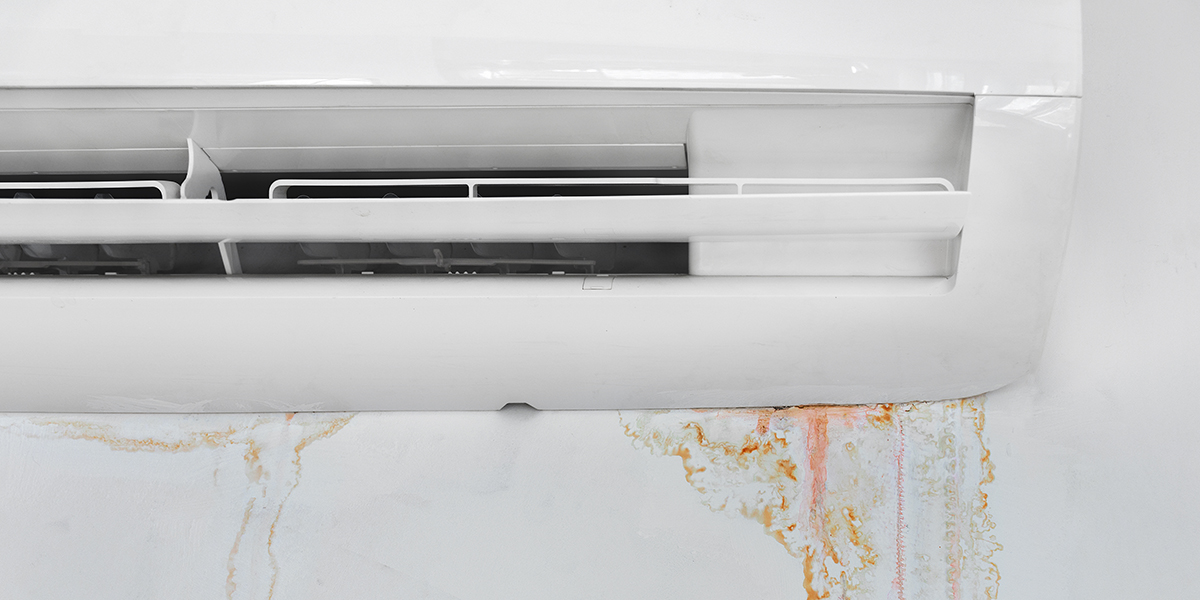
Having trouble with a water leak from your AC? Call Felix Appliance Heating & Air for quick and affordable assistance at 480-406-7487.
Looking after your system can increase its lifespan, helping you catch any unusual circumstances like water leaks. When you notice water dripping from your system, you might wonder, “Is water dripping from AC dangerous?”
Felix Appliance Heating & Air technicians understand your concerns and answer some pertinent questions. Our team provides professional AC repair in Queen Creek, AZ, and surrounding areas. Here, you can learn the signs of a water leak or a more detrimental issue.
Q1: Do AC Water Leaks Put Me in Danger?
Technically, the answer depends on your actions. Water from air conditioners does not have dangerous qualities that can harm you if you touch it. Instead, water dripping or pooling beneath your AC can indicate a minor system issue.
However, leaving the water and its cause alone can expose your property to water damage. The water can cause mold, weaken your walls, or make your floors buckle, especially if you have wood. You’ll be better off having a specialist check your system and fix the problem causing the water leak.
A more concerning issue stems from a refrigerant leak. Any repairs to a refrigerant line need to happen quickly and, by law, require a licensed HVAC technician.
Q2: How Does an AC Leak Water?
Air conditioners do not make cold air but cool incoming and circulating air using refrigerant. This process takes heat and humidity from the property, gathering condensation.
While air conditioners have drainage systems to prevent water leaks, internal issues can cause condensation buildup. Some of the most common causes for AC water leaks include the following:
- Dirty air filters
- Dirty or frozen evaporator coils
- A clogged or cracked drain pan
- A clogged or disconnected drain line
- A broken condensation pump
Is water dripping from AC dangerous? The water tends to be nontoxic, but your home shouldn’t have leaking water on its floors or walls. We suggest cleaning up any visible leaks and calling a specialist to take care of the underlying cause.
Q3: How Can I Tell if the AC Is Leaking Water?
Condensation should instead gather on the evaporator coils and drip into the internal drain pan. The pan directs the water to the drain line, which carries the liquid out of your property. AC water leaks usually produce visible results, such as:
- Puddles or dripping beneath your indoor unit
- A full drain pan
- The smell of mold or mildew on your property
- Water damage near your unit
- Water spots on the floor or the unit’s fan
When you notice these issues, you should have an AC technician diagnose and treat the problem. You can save yourself from needing to fix your home in addition to the AC in the future.
Q4: What Does Refrigerant Do? Can It Leak?
Air conditioner refrigerant helps cool incoming air, having chemical properties promoting heat transfer. The refrigerant takes heat out of your indoor air and sends it away from your home. It can quickly and easily change between liquid and gaseous forms, allowing it to collect and disperse heat energy.
While the chemical has many fantastic properties, it is toxic to the environment and can damage your health. An initial refrigerant leak may not cause problems, but consistent exposure can. You may start experiencing symptoms with refrigerant exposure, including:
- Eye, nose, and throat irritation
- Nausea
- Dizziness
- Mild headaches
Q5: How Can I Tell if the AC Is Leaking Refrigerant?
Refrigerant leaks do not cause puddles or dripping. Because of its chemical properties, it quickly becomes a gas without the pressure of the refrigerant lines. However, reduced amounts of refrigerant in your system can cause noticeable issues with your AC.
Ask yourself these questions and see if you answer yes to any of them:
- Is your AC running, but your home stays warm?
- Is warm air coming from your vents despite the current thermostat setting?
- Have your electric bills increased recently?
- Do you have ice on the evaporator coils or refrigerant lines?
If you answer yes, you may have a refrigerant leak. Open the windows, turn off the AC, and call an HVAC specialist. If you leave the AC on, you could damage the system, requiring more expensive repairs.
Call Us To Stop Any AC Leaks
While searching “is water dripping from AC dangerous?” you might have found you have a more serious leak issue. Regardless of a water or refrigerant leak, Felix Appliance Heating & Air takes care of its causes with expert solutions. Call 480-406-7487 to schedule your appointment today!
